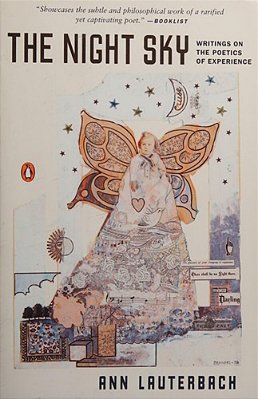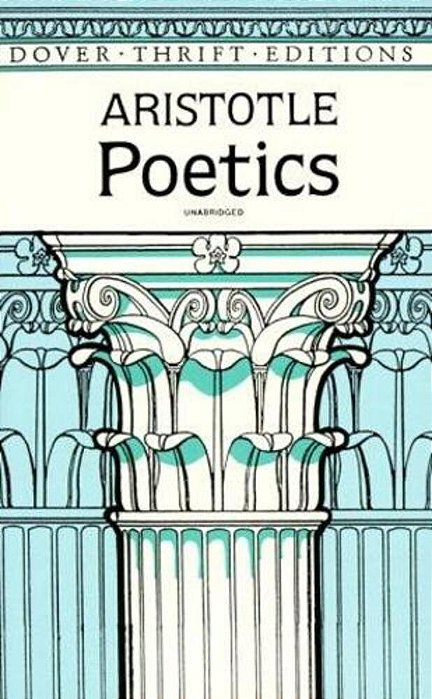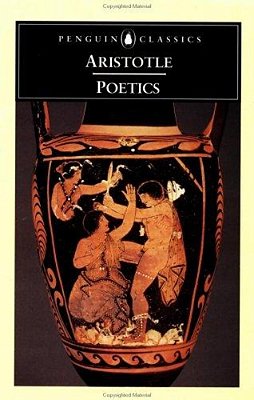Poetics-..
-
R$ 35,48

-
R$ 37,35

-
R$ 37,35

Among the most influential books in Western civilization, Aristotle's Poetics is really a treatise on fine art. In it are mentioned not only epic and dithyrambic poetry, but tragedy, comedy, and flute and lyre playing. Aristotle's conception of tragedy, i.e. the depiction of a heroic action that arouses pity and fear in the spectators and brings about a catharsis of those emotions, has helped perpetuate the Greek ideal of drama to the present day. Similarly, his dictums concerning unity of time and place, the necessity for a play to have a beginning, middle, and end, the idea of the tragic flaw and other concepts have had enormous influence down through the ages.
Throughout the work, Aristotle reveals not only a great intellect analyzing the nature of poetry, music, and drama, but also a down-to-earth understanding of the practical problems facing the poet and playwright. Now, in this inexpensive edition of the Poetics, readers can enjoy the seminal insights of one of the greatest minds in human history as he sets about laying the foundations of critical thought about the arts.
Aristotle
Breve biografia: Filósofo grego (384 a.C.-322 a.C.). Considerado o fundador da Lógica, sua obra tem grande influência na Teologia cristã na Idade Média. Nasce em Estagira, antiga Macedônia, atual província da Grécia. Muda-se para Atenas aos 17 anos, freqüenta a Academia de Platão e permanece como seu discípulo por 20 anos. Após a morte de Platão, passa três anos em Assos, na Ásia Menor, e muda-se para a Ilha de Lesbos. Em 343 a.C. é chamado para ser professor do príncipe Alexandre, da Macedônia. Quando Alexandre, o Grande assume o trono, volta a Atenas e, em 335 a.C., organiza sua própria escola, o Liceu. Ao contrário da Academia de Platão, interessada apenas na Matemática, o Liceu é voltado à pesquisa das Ciências Naturais. Aristóteles desenvolve aí um sistema filosófico baseado numa concepção rigorosa do Universo. De orientação realista, defende a busca da realidade pela experiência. Para ele, deve-se procurar o conhecimento por meio do "intelecto ativo", como chama a inteligência. Todas as suas obras se perderam, salvo Constituição de Atenas. O pensamento aristotélico foi preservado por seus discípulos e atinge várias áreas do conhecimento, como Lógica, Ética, Política, Teologia, Metafísica, Poética, Retórica, Antropologia, Psicologia, Física e Biologia. Seus escritos lógicos estão reunidos no livro Organon.Fonte: www.e-biografias.net/biografias/aristoteles.shtml |
| ISBN | 9780486295770 |
| Autor(a) | Aristotle |
| Editora | Dover Publications |
| Ano de edição | 1997 |
| Acabamento | Brochura |
Produtos relacionados
-
 The Night Sky: Writings On The Poetics Of Experience-..R$ 199,20até 3x de R$ 66,40 sem jurosou R$ 189,24 via Pix
The Night Sky: Writings On The Poetics Of Experience-..R$ 199,20até 3x de R$ 66,40 sem jurosou R$ 189,24 via Pix
- A1
- Activity Books
- Atividades Sociais e Profissionais
- B2
- C1
- Catálogos
- Ensino de Idiomas
- Exames Internacionais
- Goethe-Institut
- Literatura Internacional
- Myre - Catálogo De Inglês
- Papelaria e Boutique
- Quinzena Do Consumidor 2025
- Readers
- Educação
- Infantil & Juvenil
- Literatura
- Artes
- Ciências Biológicas
- Ciências Biomédicas
- Ciências Exatas e Tecnologia
- Ciências Humanas e Sociais
- Dicionários e Produtos de Referência
- Interesse Geral









